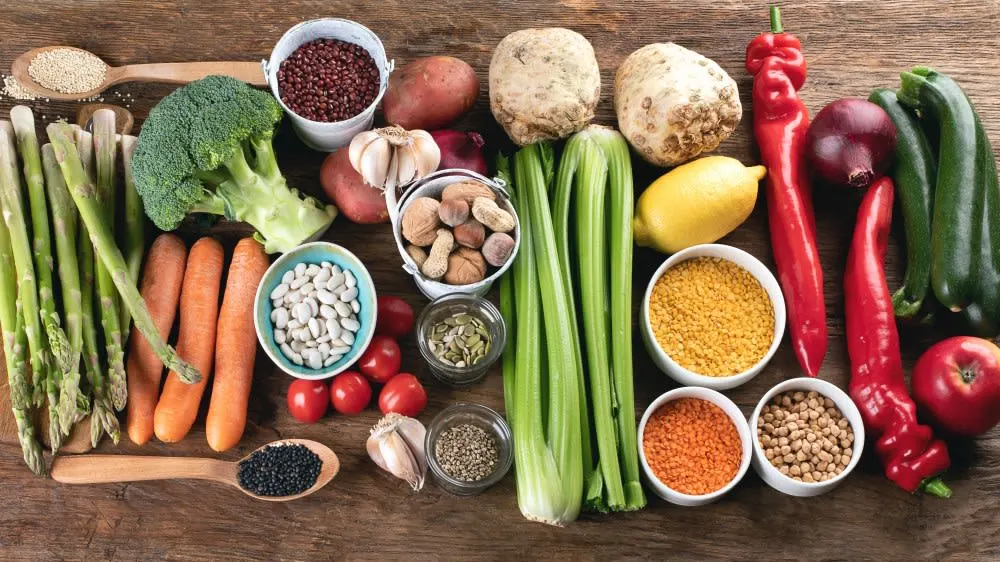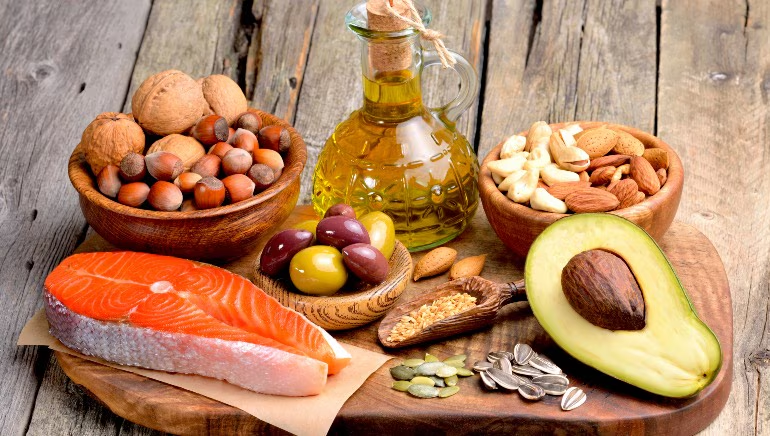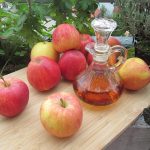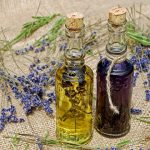
Dandruff is one of those conditions that may not be dangerous, but it can certainly be frustrating, embarrassing, and sometimes even persistent enough to affect your confidence. Many people automatically reach for shampoos and scalp treatments, which do help, but often overlook one critical piece of the puzzle: diet. What you eat has a direct impact on your scalp health, and a well-balanced dandruff diet can make a noticeable difference in keeping flakes at bay.
If you’ve been trying to deal with dandruff through topical products alone, you may be missing out on the power of nutrition. Let’s break down what a dandruff diet really means, the foods that help, the ones that harm, and how to make long-term changes that support both your scalp and your overall well-being.
Why Your Diet Affects Dandruff
Your skin is a reflection of what goes on inside your body, and your scalp is no exception. When your body lacks essential nutrients or is overloaded with inflammatory foods, it can show up as dryness, itchiness, and flaking on the scalp.
Dandruff can be triggered by multiple factors, including fungal overgrowth (particularly Malassezia), excess oil production, stress, and even weather changes. However, diet plays a significant role because:
- Nutrient deficiencies weaken the skin barrier, making the scalp more vulnerable.
- Excess sugar or refined carbs fuel yeast growth, which worsens dandruff.
- Lack of hydration and healthy fats dries out the scalp.
It’s no surprise then that people who clean up their diets often see improvement in dandruff without making drastic changes to their hair care routine.
Key Nutrients That Fight Dandruff
A good dandruff diet isn’t about rigid restrictions; it’s about focusing on the nutrients that strengthen your scalp, fight inflammation, and support natural oil balance. Here are the main ones to pay attention to.
Zinc
Zinc deficiency is strongly linked with dandruff. This mineral supports healthy skin cell turnover and regulates oil glands. Oysters, pumpkin seeds, cashews, and chickpeas are great zinc-rich foods to include.
Omega-3 Fatty Acids
These healthy fats reduce inflammation, keep the scalp hydrated, and prevent excessive dryness. Salmon, walnuts, chia seeds, and flaxseeds are excellent choices.
Vitamin B Complex
B vitamins, especially B6 and B12, are crucial for healthy hair and scalp. They help in managing sebum production and preventing dryness. Whole grains, eggs, bananas, and leafy greens are reliable sources.
Probiotics
Gut health is closely tied to skin health. Probiotics balance gut bacteria, reducing inflammation that may contribute to dandruff. Yogurt, kefir, kimchi, and sauerkraut should be part of your diet.
Vitamin D
Low vitamin D levels are associated with skin problems, including scalp irritation. Safe sun exposure and vitamin D-rich foods like fortified dairy or mushrooms can help.
Foods to Include in a Dandruff Diet

Let’s talk about what your plate should look like if you’re serious about getting rid of flakes.
Fatty Fish
Fish like salmon, mackerel, and sardines are rich in omega-3s and vitamin D. Eating them at least twice a week can significantly improve scalp health.
Fresh Fruits and Vegetables
Antioxidants in fruits and vegetables reduce oxidative stress and inflammation. Aim for a colorful plate with leafy greens, carrots, berries, and citrus fruits.
Whole Grains
Brown rice, oats, and quinoa not only give you energy but also provide B vitamins and fiber, which improve digestion and reduce inflammation.
Seeds and Nuts
Pumpkin seeds, sunflower seeds, walnuts, and flaxseeds are nutrient-dense snacks that boost zinc and omega-3 intake.
Probiotic Foods
Incorporating yogurt, kefir, or fermented vegetables into your meals supports gut balance, which reflects positively on scalp health.
Foods to Avoid in a Dandruff Diet
This is where many people slip up. Even if you use the right shampoos, eating too much of the wrong foods can undo your progress.
Sugary Foods
Sugar fuels yeast growth, which is one of the main triggers of dandruff. Regular intake of sweets, sodas, or processed snacks makes it harder to control flakes.
Refined Carbohydrates
White bread, pasta, and pastries quickly convert to sugar in the body, causing similar issues to sweets. Opting for whole grains instead makes a big difference.
Fried and Oily Foods
Greasy fast food increases oil production on the scalp, creating the perfect environment for dandruff-causing fungi to thrive.
Dairy (for some people)
While dairy provides calcium and protein, in some individuals, it can worsen inflammation and scalp irritation. If you notice flare-ups after consuming milk or cheese, consider cutting back.
Alcohol
Excessive alcohol dehydrates the body, reduces immunity, and can worsen dandruff symptoms. Moderation is key.
Stats That Put It Into Perspective
The connection between diet and dandruff is not just anecdotal. Global data suggests that:
- Around 50% of the world’s population experiences dandruff at some point in their lives.
- A study found that zinc deficiency affects up to 20% of people in South Asia, a region where dandruff is widely reported.
- Omega-3 deficiency is prevalent, with surveys showing that nearly 70% of adults worldwide don’t get enough through diet.
- In a survey on diet and skin health, over 60% of respondents reported improvements in dandruff after reducing sugar and processed foods.
These numbers highlight that dandruff is not just a scalp condition; it’s a lifestyle issue with dietary roots.
Building a Sustainable Dandruff Diet
Knowing what to eat and what to avoid is one thing, but putting it into practice is another. The goal is not to follow a restrictive plan but to build a balanced approach that can be sustained long term.
A practical way to start is by making gradual swaps. Replace sugary snacks with fruits, switch white bread for whole grain, and trade fried foods for baked or grilled alternatives. Aim to build meals that are rich in lean protein, vegetables, and healthy fats, while staying hydrated with plenty of water.
Lifestyle Habits That Complement Your Dandruff Diet
While diet is a cornerstone, pairing it with the right lifestyle choices enhances results. Managing stress, sleeping well, and maintaining scalp hygiene all play a role. Stress, in particular, is a silent trigger that can disrupt hormonal balance and worsen dandruff. Combining mindfulness practices like yoga or meditation with your dandruff diet creates a holistic approach to scalp care.
A Realistic Outlook
It’s important to set realistic expectations. A dandruff diet will not make flakes vanish overnight. Nutritional changes take time to show results, often weeks to months. However, when you stick with it, the improvements are usually more sustainable than temporary fixes from shampoos alone.
Think of your dandruff diet as an investment not just in your scalp but in your overall health. Better skin, stronger hair, improved digestion, and more energy are just some of the side benefits you’ll notice when your nutrition improves.
Conclusion
Dandruff can be stubborn, but it doesn’t have to rule your life. By focusing on what goes on your plate as much as what goes on your scalp, you can create lasting improvements. A dandruff diet rich in omega-3s, zinc, probiotics, and vitamins gives your scalp the tools it needs to fight dryness, inflammation, and fungal overgrowth. At the same time, cutting back on sugar, refined carbs, fried foods, and excessive dairy removes the fuel that feeds dandruff in the first place.
The beauty of this approach is that it doesn’t just target dandruff; it supports your whole body. Eating clean, balanced meals benefits your skin, hair, energy, and immunity. If you’ve been stuck in a cycle of dandruff shampoos and temporary fixes, it may be time to take a look at your fork instead of just your bathroom shelf. A dandruff diet might be the missing link to the clear, flake-free scalp you’ve been looking for.




Leave a Reply